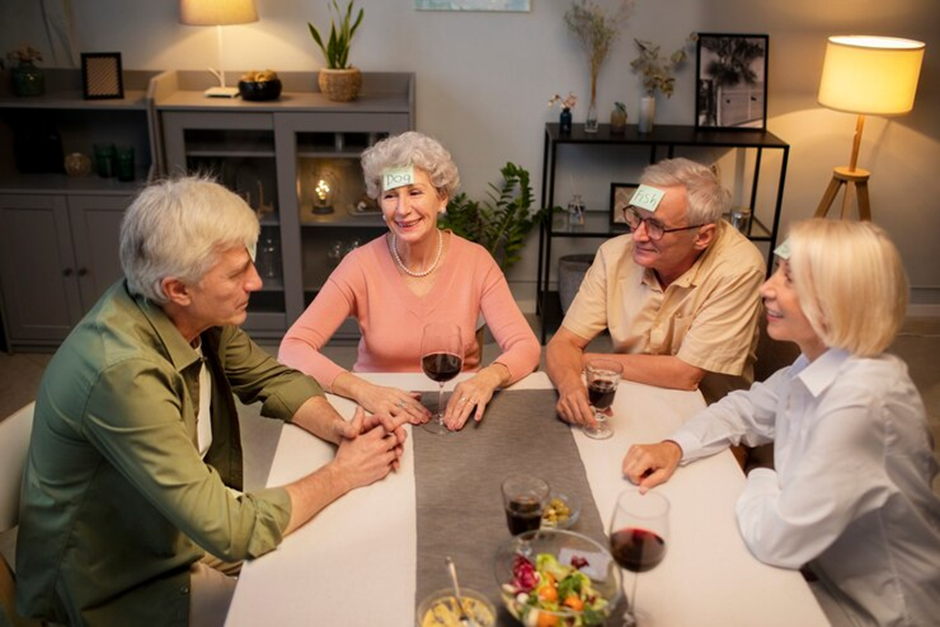Retirement homes have evolved significantly over the years, transforming from mere living spaces for the elderly into vibrant communities that prioritize the overall well-being of their residents. One of the most crucial aspects contributing to this transformation is the emphasis on social activities. These activities are not just for entertainment; they play a vital role in enhancing the quality of life for seniors. In this blog, we will explore the numerous benefits of social activities in senior retirement homes, highlighting how they contribute to physical, emotional, and mental well-being.
Top 10 Advantages of Social Activities in Senior Living Homes
1. Combating Loneliness and Isolation
One of the most pressing issues faced by seniors is loneliness. As they age, their social circles often shrink due to the loss of friends and loved ones, physical limitations, or the transition into a retirement community. Social activities provide a structured environment for seniors to interact, forge new friendships, and maintain a sense of community. Regular social engagement can significantly reduce feelings of loneliness and isolation, leading to a happier and more fulfilling life.
Mental health is a critical component of overall well-being, and social activities play a significant role in promoting mental health among seniors. Engaging in group activities, such as games, discussions, or creative pursuits, stimulates cognitive function and helps keep the mind active. This mental stimulation can delay the onset of cognitive decline and reduce the risk of mental health issues like depression and anxiety. Furthermore, having a supportive social network provides emotional support, which is essential for maintaining mental health.
Social activities often involve physical movement, whether it’s through dance classes, group exercises, gardening, or outdoor excursions. These activities encourage seniors to stay active, which is vital for maintaining physical health. Regular physical activity improves cardiovascular health, strengthens muscles, enhances flexibility, and boosts overall energy levels. Additionally, group activities can be more motivating than exercising alone, helping seniors to stay committed to their fitness routines.
4. Boosting Self-Esteem and Confidence
Participating in social activities allows seniors to explore new hobbies and interests, which can boost their self-esteem and confidence. Learning new skills or revisiting old passions can give seniors a sense of accomplishment and purpose. The positive reinforcement from peers and staff further enhances their self-worth and encourages them to stay engaged and active within the community.
5. Enhancing Emotional Well-Being
Emotional well-being is closely tied to social connections. Engaging in social activities provides opportunities for laughter, joy, and emotional expression, which are crucial for emotional health. Whether it’s sharing stories, participating in group discussions, or enjoying communal meals, these interactions provide emotional nourishment and help seniors cope with the emotional challenges that come with aging.
6. Promoting a Sense of Belonging
A sense of belonging is fundamental to human well-being. Social activities in senior retirement homes foster a sense of community and belonging, making residents feel valued and included. This sense of belonging is particularly important for seniors who may feel disconnected from their previous lifestyles. Being part of a community where they are recognized and appreciated enhances their overall quality of life and gives them a renewed sense of purpose.
Social activities that involve mental challenges, such as trivia games, puzzles, and educational seminars, provide cognitive stimulation that is crucial for brain health. These activities help keep the mind sharp and can improve memory, attention, and problem-solving skills. Regular cognitive engagement is essential for preventing cognitive decline and maintaining mental acuity.
Participating in social activities encourages seniors to remain independent and self-reliant. By engaging in group activities and events, seniors can continue to make decisions, take on responsibilities, and contribute to the community. This sense of independence is empowering and helps seniors maintain their dignity and self-respect.
9. Providing Structure and Routine
Having a structured routine is beneficial for seniors, especially those who may struggle with time management or have memory issues. Social activities provide a framework for daily schedules, giving residents something to look forward to and a reason to stay active and engaged. This structure can be particularly helpful for those with conditions like Alzheimer’s or other forms of dementia, as it provides a predictable and comforting environment.
10. Building Intergenerational Connections
Many retirement homes now incorporate intergenerational programs that bring together seniors and younger generations. These programs foster mutual understanding and respect, and they provide opportunities for seniors to share their wisdom and experiences with younger people. Intergenerational connections can be incredibly enriching for both parties, offering a sense of legacy and continuity for seniors and valuable life lessons for the younger generation.
Summarizing Up:
Social activities are far more than mere pastimes in senior retirement homes; they are essential components of a holistic approach to elderly care. By promoting social interaction, mental and physical health, emotional well-being, and a sense of purpose and belonging, these activities significantly enhance the quality of life for seniors. As retirement homes continue to evolve, the importance of integrating comprehensive social programs cannot be overstated. They are the key to creating vibrant, supportive, and thriving communities where seniors can enjoy their golden years to the fullest.
